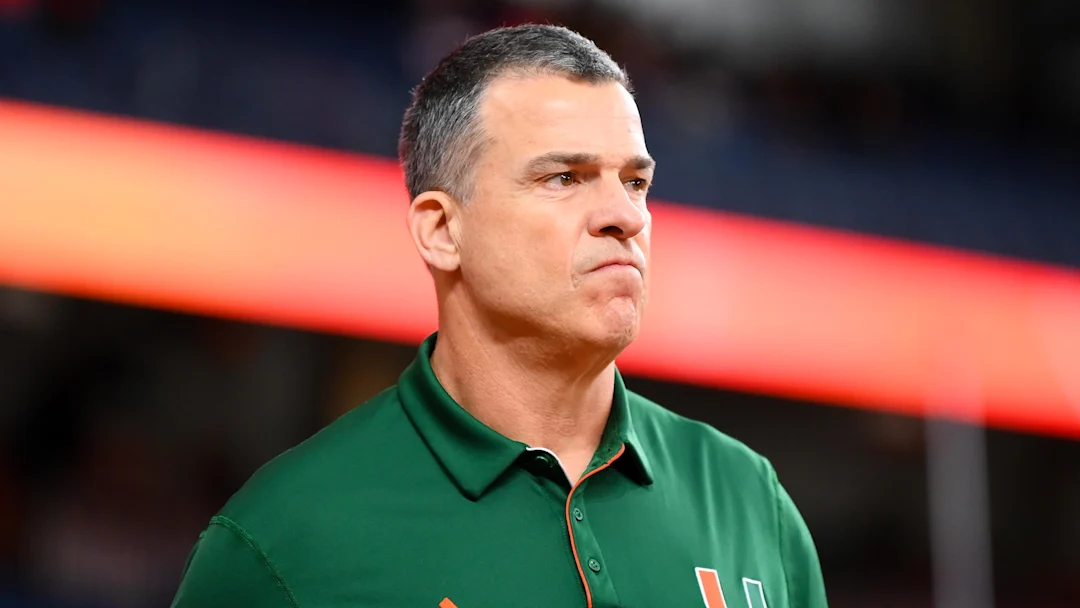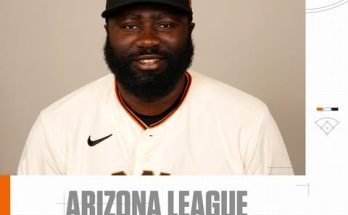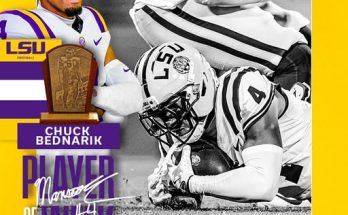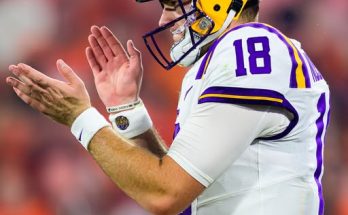There’s an undeniable air of anticipation in Coral Gables. After a rocky couple of seasons marked by inconsistent defensive play and high-profile missteps, Miami Hurricanes head coach Mario Cristobal is drawing a hard line in the sand — and he believes new defensive coordinator Corey Hetherman is the man to lead a complete turnaround.
Cristobal, now entering a pivotal year at the helm of his alma mater, is not mincing words. He expects a revolution on the defensive side of the ball. For a program steeped in defensive tradition — from the snarling dominance of the ’80s to the swagger-filled brutality of the early 2000s — it’s not just about improvement. It’s about reclaiming an identity.
The hire of Hetherman, previously at Rutgers, sent a message: enough is enough. In recent years, Miami’s defense has too often looked overwhelmed, undisciplined, and, at times, outright lost. Missed tackles, blown coverages, and a lack of consistent pressure up front have plagued the Hurricanes. Cristobal’s frustration has been apparent, both in postgame pressers and behind closed doors. While there were flashes of promise, they were drowned out by breakdowns that cost Miami wins and stripped the program of momentum.
That’s where Hetherman comes in — a defensive mind with a reputation for maximizing talent, instilling discipline, and demanding effort on every snap. Known for his aggressive style and flexible schemes, Hetherman doesn’t just bring a new playbook to Coral Gables; he brings a new philosophy. His defenses at Rutgers, despite limited resources and depth, consistently overachieved. They were tough, assignment-sound, and capable of creating chaos in the backfield. In the hyper-competitive world of Power Five football, that kind of tactical sharpness is currency — and Miami is banking on it paying off in 2025.
Cristobal has repeatedly said that Miami’s turnaround won’t just be about talent. He’s stacked recruiting classes and dipped into the transfer portal, yes. But in his mind, the Canes’ long-term success will hinge on culture — and defense, more than anything else, reflects a team’s culture. It’s about effort. Communication. Resilience. Those are the traits Cristobal wants to see every Saturday, and he’s betting Hetherman can drill them into a unit that has struggled with all three.
Part of what excites Cristobal is Hetherman’s ability to connect with players. During spring practice, the buzz among defensive players has been noticeable. Linebackers are raving about the new scheme’s clarity. Defensive linemen are embracing more creative blitz packages. Safeties are being challenged to lead from the back. There’s buy-in — and that’s something that was missing in prior regimes. Hetherman’s style is direct, intense, and intentional. His practices are sharp, his expectations unrelenting. There’s no freelancing, no gray area. Assignments must be executed with precision. Mistakes are corrected immediately. There is an accountability that’s been lacking in the Miami defense for years.
Cristobal sees Hetherman as more than a coordinator — he sees him as a culture-shifter. That’s why the hire was so important. It wasn’t about flashy credentials or big-name recognition. It was about fit. Cristobal wanted a leader who would echo his own demands for toughness, physicality, and preparation. In Hetherman, he found a like-minded tactician who brings structure to chaos.
While Miami’s defense was statistically middle-of-the-pack last season, the advanced numbers tell a more troubling story. The Hurricanes gave up far too many explosive plays, particularly on third down. Their red zone defense was leaky, and their pass rush disappeared in critical moments. Opposing quarterbacks looked far too comfortable, and mobile QBs routinely gashed Miami with their legs. These breakdowns weren’t just about personnel. They were about alignment, communication, and trust. Hetherman’s first job will be to address those foundational issues before even thinking about X’s and O’s.
But Hetherman is not walking into a bare cupboard. Miami has talent — plenty of it. Former blue-chip recruits dot the two-deep. The defensive line, led by returning disruptors and reinforced by key portal additions, has the potential to be dominant. The linebacker corps, often a weak link in recent years, is now deeper and more athletic. In the secondary, the Hurricanes boast physical corners and rangy safeties who fit Hetherman’s scheme. There’s work to do, yes, but the raw ingredients are there. Cristobal is confident that under Hetherman, they’ll finally be molded into a cohesive, dangerous unit.
Spring ball offered a first glimpse of what that might look like. Practices were more physical. There was more communication between levels of the defense. Linebackers flowed downhill with confidence. Defensive backs challenged receivers with more aggression. And most importantly, mistakes were fewer and farther between. Players weren’t just flying to the ball — they were doing so with purpose. That shift in mentality is exactly what Cristobal wanted to see.
Of course, it won’t be perfect overnight. Defensive turnarounds take time, especially in a conference as offensively loaded as the ACC. Miami’s early schedule features several elite quarterbacks and high-octane attacks. Hetherman’s system will be tested from the jump. But Cristobal isn’t looking for perfection right away. He’s looking for progress. Measurable, visible, undeniable progress. Fewer blown assignments. More third-down stops. Turnovers. Physicality. If the Hurricanes can string those things together early, confidence will snowball.
One of Cristobal’s biggest frustrations in previous seasons was Miami’s inability to adjust in-game. Too often, the Hurricanes were reactive, not proactive. Hetherman, known for his in-game adaptability, is expected to change that. His film study habits are meticulous. He’s known for installing opponent-specific wrinkles each week that exploit offensive tendencies. That chess match element is something Cristobal believes will separate Miami from the pack.



